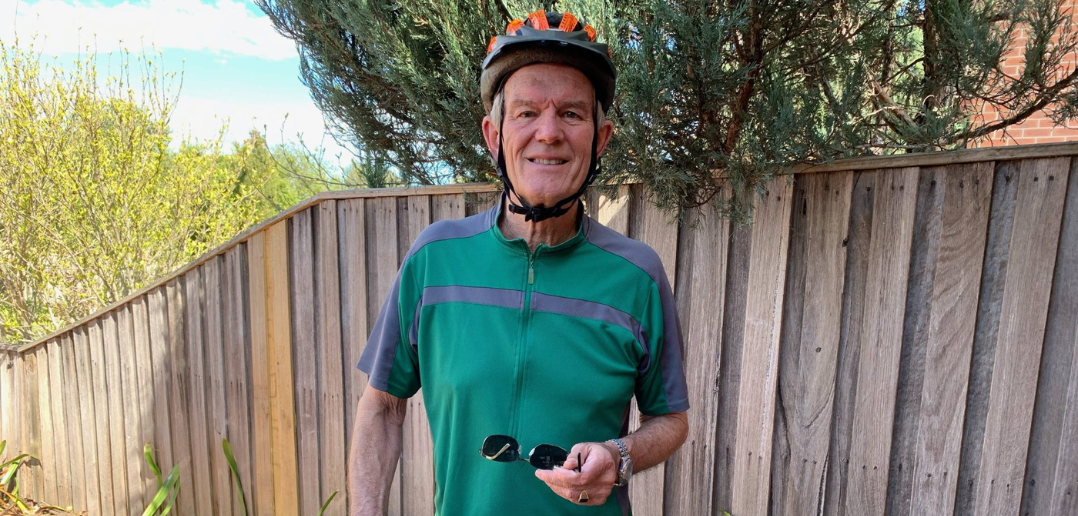Magpie attack victim: Protect your eyes

03/10/23
It is magpie swooping season – and Australians are being warned to take precautions to prevent life-changing injuries.
Melbourne man Christiaan Nyssen knows all too well the risks of being unprotected during the breeding period, as he almost lost the sight of one eye during a frenzied attack when out cycling in November 2021.
After another recent magpie-inflicted injury, he is urging people to wear sunglasses when in areas where the birds might be nesting.
“The attack was one-in-a-million injury and it caught me by surprise, but sunglasses would have made a big difference,” Mr Nyssen said of the 2021 incident, which took place in Yarrawonga near the Victoria-New South Wales border.
“The magpie wouldn’t have had something to aim at.”
A keen cyclist, he had forgotten his sunglasses when he went out for the ride.
“I have been attacked countless times and don’t have a fear of the birds, but I always have glasses on,” said Mr Nyssen, who lives in the north-west Melbourne suburb of Sunbury.
“This bird turned around and went straight for the eye, did a backflip and hit me right in the eye again. A neighbour said I was the fifth person to be attacked.”
The attack damaged his iris, meaning pupil dilation let in too much light and he was unable to see from that eye.
After being told to wait several months to see if his vision improved, Mr Nyssen decided to get a second opinion and was referred to specialist eye surgeon Dr Elvis Ojaimi at Melbourne’s Epworth Freemasons Hospital.

Dr Ojaimi found considerable damage to the eye, including a detached retina and a cataract with instability.
“It required delicate surgery aided by a powerful microscope and supported by the Epworth Freemasons theatre team, to repair the retina and remove the entire lens,” Dr Ojaimi said.
Dr Ojaimi then inserted a new type of intraocular lens with a prosthetic colour-matched iris diaphragm, imported from the United States, to reduce the amount of light entering the affected eye.
“It was the first time this lens had been used in Victoria. We had to get approval from the Therapeutic Goods Administration to use it,” Dr Ojaimi said.
Magpie breeding season is usually from August to October, and male birds will aggressively protect nests from perceived threats by humans and other animals.
Magpies tend to nest in the same areas every year, so repeat swoop attacks are common.
Victoria’s state government advises people to become aware of nesting areas and avoid them, wear headgear, hold a stick or umbrella above your head, not feed the swooping birds, and not to respond aggressively to their attacks.
